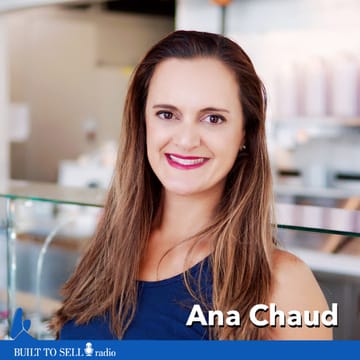About this episode
Before the pandemic, fancy salad bars were popping up in major cities across the US, making the category one of the fastest-growing sectors of the restaurant industry. Despite their popularity in major cities, when Ana Chaud moved to Portland, Oregon, she was surprised to see a shortage of good salad options.
Chaud started Garden Bar to offer fast-casual salads to Portland hipsters. The first store was a success, but the restaurant industry’s thin margins inspired her to grow to get some economies of scale. She raised two rounds of outside capital, including one from a group of convertible noteholders. Chaud skimmed the term sheet but trusted her investors, so she didn’t think much about a clause that gave noteholders 2.5 times their money if Chaud sold the business before the note expired.
Chaud continued to grow to nine locations with a 10th on the way when she attracted an exciting offer from Evergreens, Seattle’s fastest-growing salad restaurant. Things were going according to plan right up until Chaud’s lawyer pointed out the investor’s clause, which had the potential to wash out all her equity.
In the end, Chaud agreed to give all the proceeds of her acquisition to her investors and negotiated an earn-out, which would allow her the possibility of a return on her years of sacrifice. Then COVID-19 hit, Portland restaurants were ordered closed, and Chaud ended up with nothing.
Despite the catastrophic financial outcome for Chaud, Garden Bar offers three priceless lessons for aspiring value builders:
- Ideas Are Overrated: Many would-be founders sit on the sidelines and never start a business for fear of not having a winning idea. As Chaud’s example shows, you don’t need a brand-new concept to have a successful business. In many cases, being the first to bring a successful idea to your city is all you need.
- Do Something Unique: As Chaud began to grow, competitors sprang up, but Chaud had something that made her chain different. She offered customers a re-usable container they could put a deposit on. When they returned the dirty box to any one of her 9 locations, Garden Bar made their next salad in a newly cleaned container, putting the dirty bowl in the wash. It was one of the reasons Garden Bar was so famous among Oregon’s eco-friendly diners.
- Read the Fine Print: Chaud glossed over the 2.5 x return clause in her convertible note agreement, reasoning she trusted the people drafting it. In hindsight, Chaud wishes she’d paid more attention and had impartial advice.
This episode also comes complete with definitions for some of the typical investor lingo you’ll run into if you choose to raise money, including buzzwords like: “convertible notes,” “preferred vs. common shareholders,” “pre and post-money valuation”, “shareholder waterfalls.”
Chaud relied on her investors for advice, but in the end, she realized they had an inherent conflict of interest. If you’re looking for an impartial advisor who understands how to build and sell a company, consider requesting a phone call with a Certified Value Builder™.
Check out our article on Lessons From Selling During A Pandemic.

About Our Guest
Ana Chaud started her career as a financial and business manager in the San Francisco Bay Area
where she built a thriving management consulting practice with a client base of over 80 companies,
for over 10 years.
In 2014, Ana co-founded Garden Bar, the first fast-casual, salad concept restaurant in the NW.
Garden Bar was quickly recognized as the “place to go” for fast, healthy casual meals. The chain
grew to 9 stores across the Portland metro and grew 600% in revenue in five years. Ana handled all
aspects of company finance and operations, including the funding strategy which featured a blend of
equity funding, convertible notes and traditional financing.
In 2019, Garden Bar was acquired by Evergreens, a fast-casual salad chain based in Seattle WA.
The acquisition provided Ana with the full-circle experience of the life cycle of her company – from
concept to exit. Ana was a finalist for the OEN Tom Hulce Entrepreneurship Award, which
recognizes the most influential entrepreneurs in Oregon.


